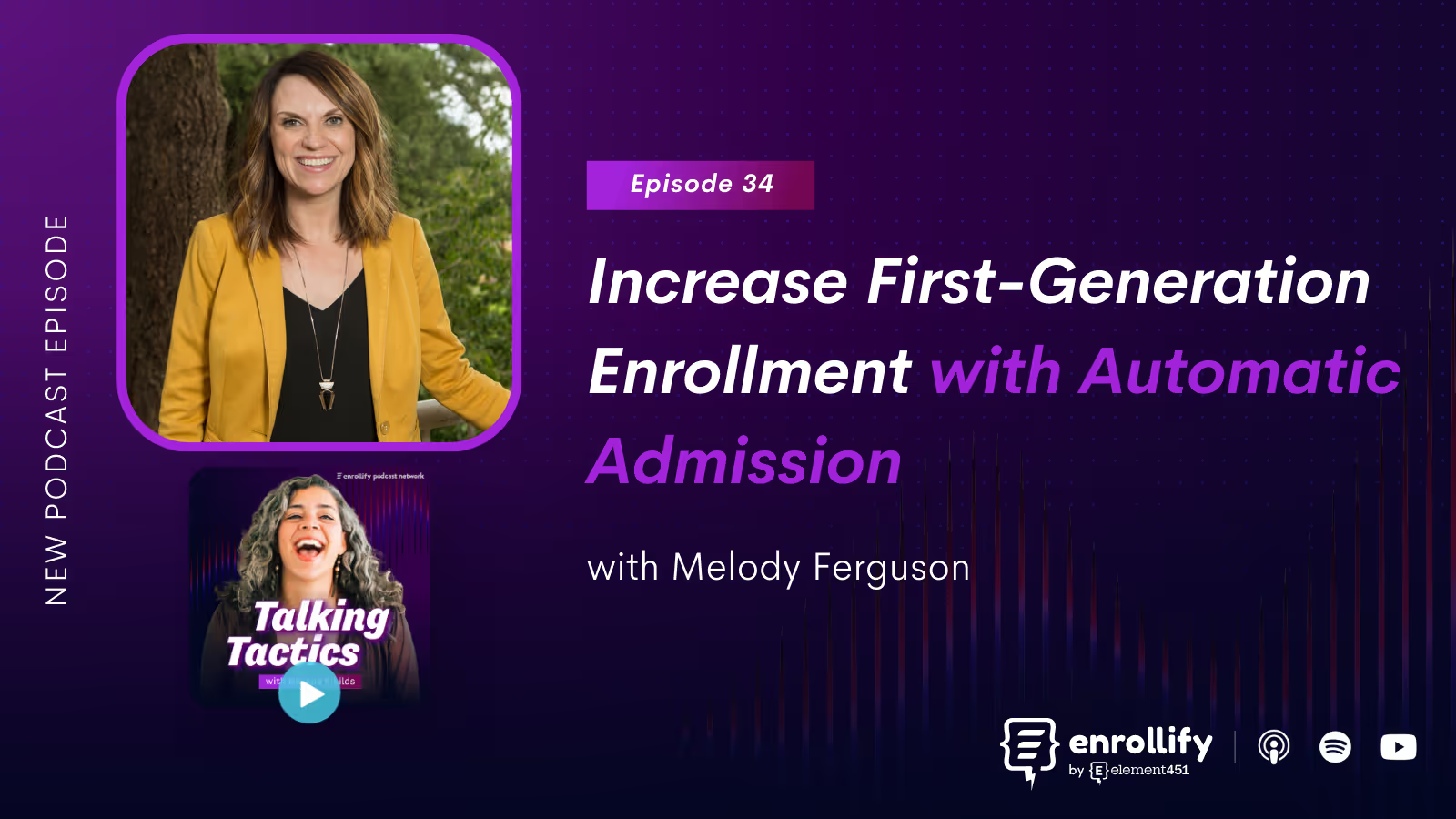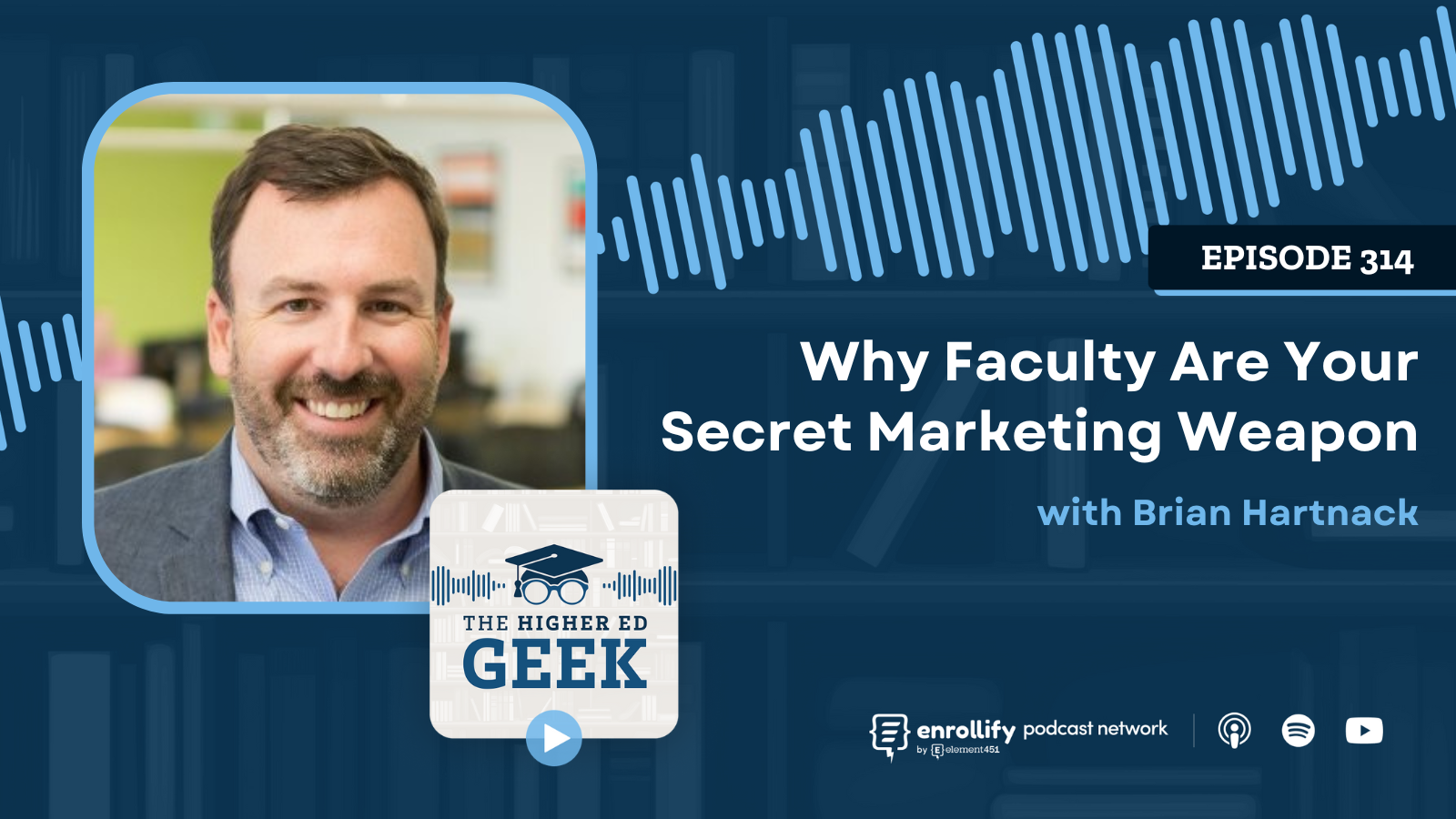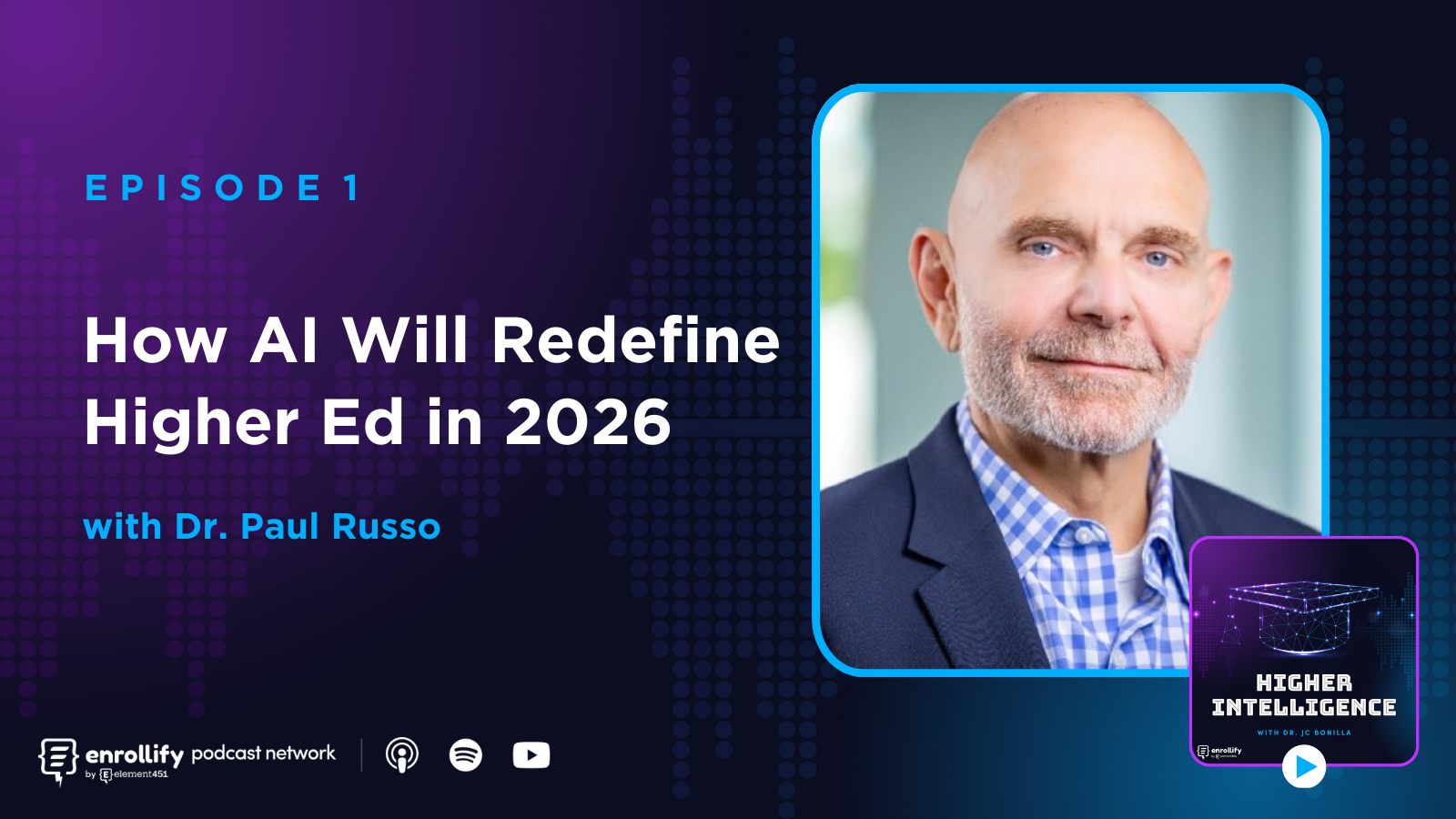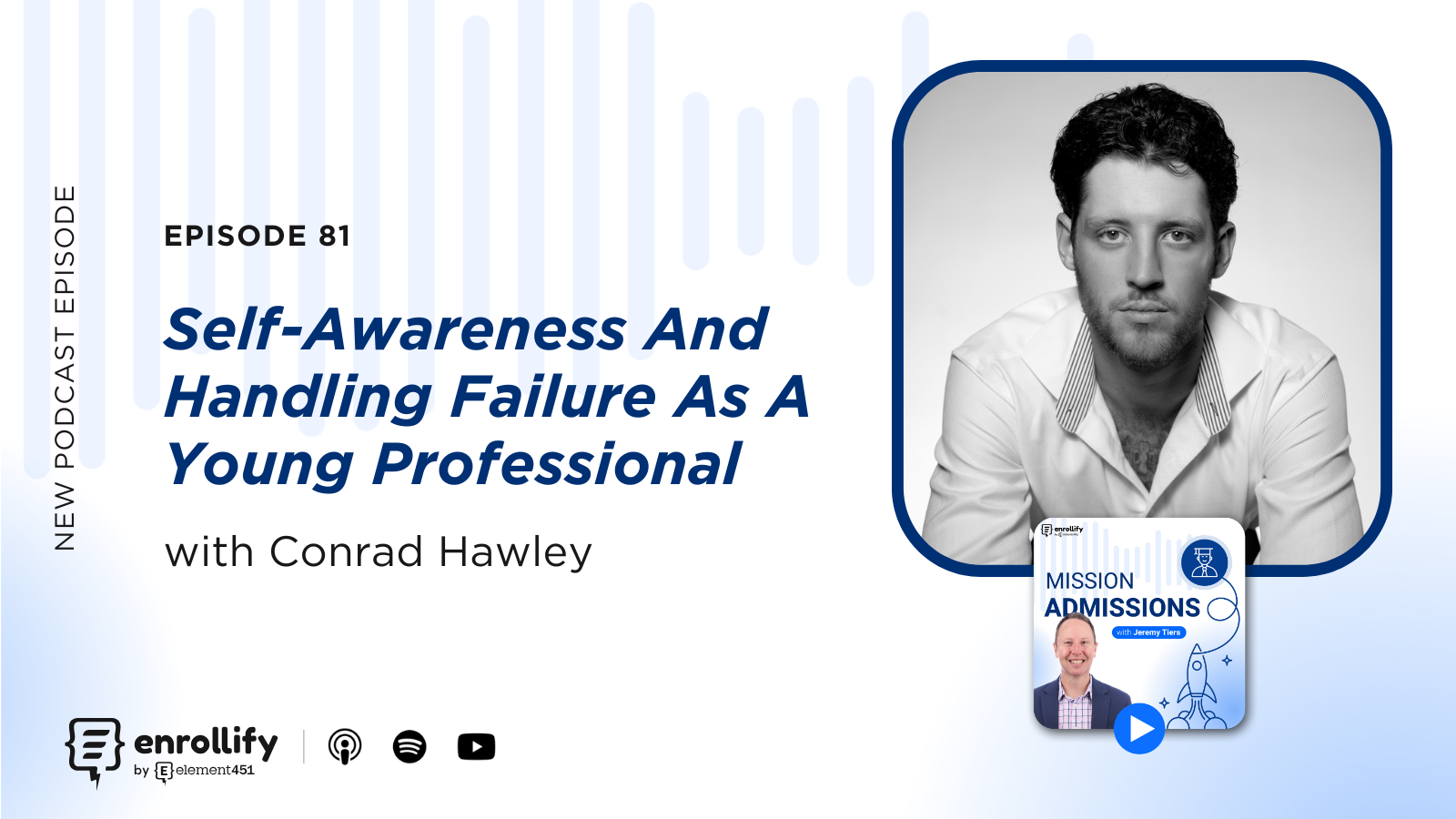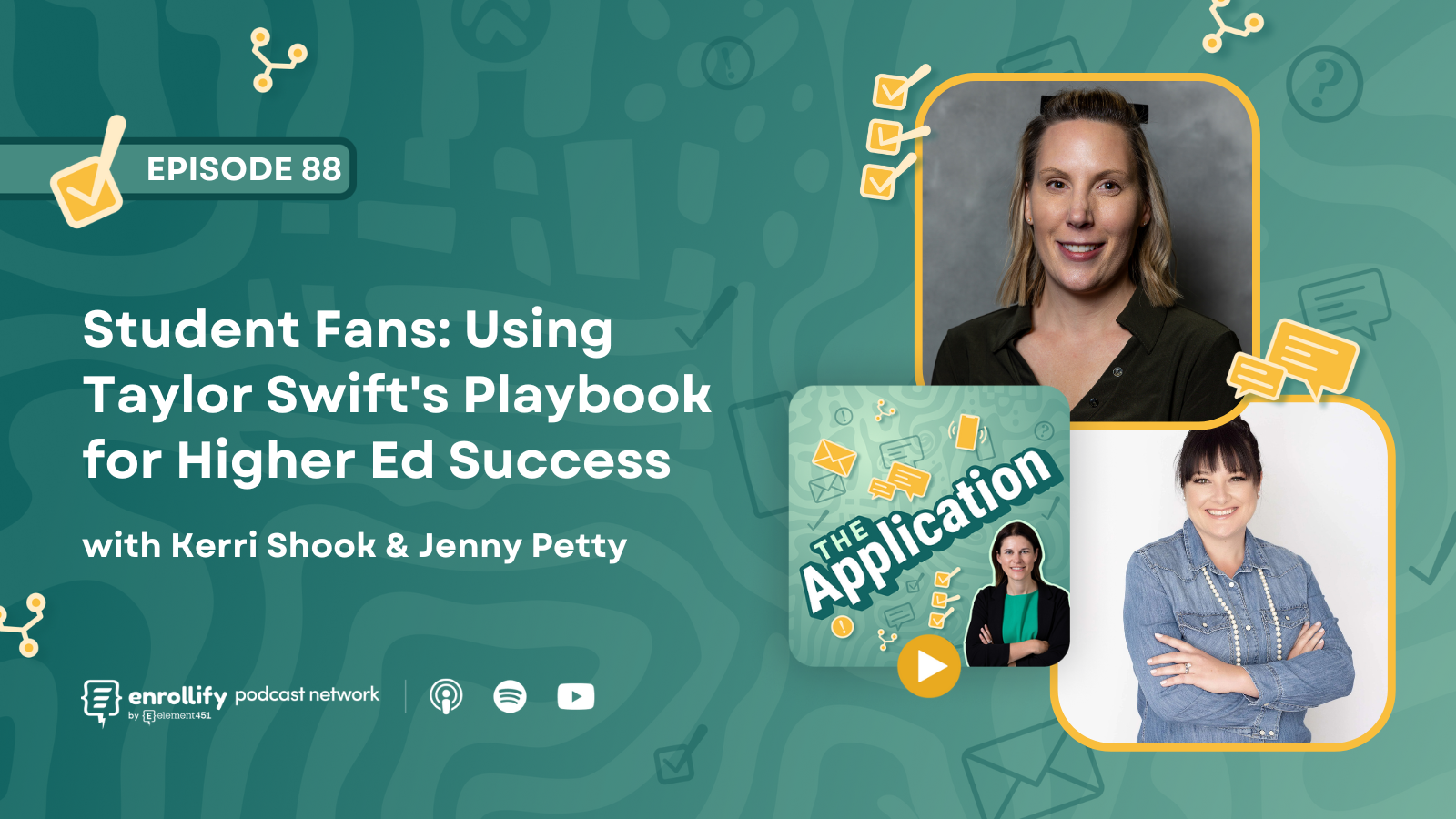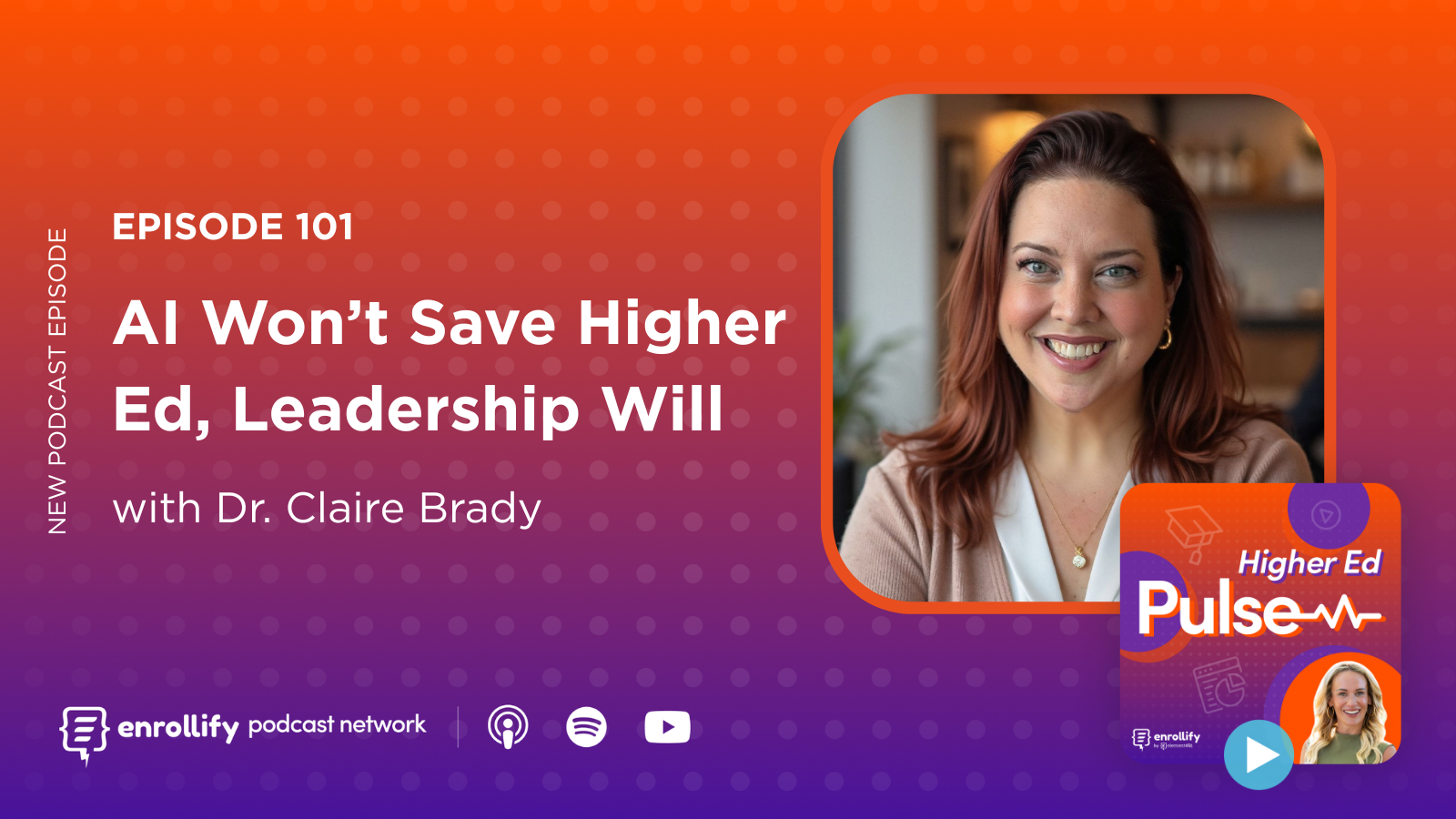About the Episode
About the Episode: For many institutions, increasing access is a strategic priority. With this tactic, you can do just that. Melody Ferguson, Dean of Admissions at Pacific Lutheran University, discusses the success of their Automatic Admission Partnership Program (AAP) in increasing enrollment, and with it, the percentage of first-generation and students of color admitted to PLU. In fact, 60.7% of this year’s incoming class admitted through the AAP is first generation, and 63.2% are students of color. Listen to this episode to start walking the walk on removing barriers to your institution too.
Key Takeaways:
- Boosting Access and Diversity: PLU’s AAP program has resulted in 60.7% of first-generation students and 63.2% students of color in the incoming class.
- Simplified Admission Process: By eliminating application hurdles, PLU makes college more accessible for students who may not otherwise apply.
- Engaging Partnerships: The success of AAP relies heavily on strong partnerships with school districts, starting with Memorandums of Understanding and secure data sharing.
- Yielding Better Enrollment: The AAP program yields a higher percentage of enrollments compared to traditional admissions.
- Scalability: PLU has scaled the program steadily, prioritizing underserved areas and small rural districts with limited access to higher education.
Episode Summary
What is the Automatic Admission Partnership (AAP) Program?
The Automatic Admission Partnership (AAP) Program at Pacific Lutheran University (PLU) began in 2021 as a response to the challenges brought on by the pandemic and the growing need for accessible higher education. As Dean of Admissions Melody Ferguson explains, AAP allows PLU to automatically admit high school seniors from partner school districts based on specific academic criteria, such as a 3.3 GPA, without requiring an application, test scores, or essays. Instead, students are notified of their acceptance directly through a partnership between PLU and their school districts.
This simplified process eliminates traditional barriers to admission, particularly for students who may be first-generation or unsure about applying to college. Ferguson highlights the importance of reducing application complexity, especially when surveys show that over 50% of students do not apply to college because they find the process too difficult. The AAP program aims to alleviate these concerns and increase college attendance among underserved populations.
How does PLU implement and manage the AAP program?
The implementation of the AAP program begins with an initial outreach from PLU’s president to district superintendents, followed by establishing a Memorandum of Understanding (MOU) and a secure data-sharing agreement. As Melody shares, building strong relationships with school districts is key, and they rely heavily on feedback from high school counselors to shape the program.
The technical side of the program involves securely receiving student data from the districts, which is then processed in PLU’s CRM system (Slate). PLU identifies eligible students based on their GPA and academic progress and sends them an automatic admission offer. An important part of the process is the "acceptance form," where students express interest in learning more about PLU. This marks the student’s entry into the university’s traditional admissions funnel, but without the hurdles of a typical application.
For schools looking to replicate this model, Ferguson emphasizes the importance of pacing growth. PLU started with one school district in the first year and gradually expanded to 41 districts in the program’s fourth year. This slow, strategic scaling allowed them to manage yield, evaluate effectiveness, and refine processes over time.
What has been the impact of the AAP program on PLU’s enrollment and student diversity?
The impact of the AAP program has been significant. As Melody points out, the program has driven enrollment growth at PLU, particularly among historically underrepresented students. The most notable results include 60.7% of AAP-admitted students being first-generation college students, and 63.2% identifying as students of color—both higher than PLU’s overall incoming class percentages.
Additionally, about 25-30% of PLU’s incoming class now comes through the AAP program, demonstrating its effectiveness not just in diversifying the student body, but in increasing overall enrollment. Ferguson also highlights that AAP students tend to yield at higher rates than students admitted through traditional means, indicating that the simplified admissions process resonates with prospective students and families.
About The Enrollify Podcast Network
Talking Tactics is a part of the Enrollify Podcast Network. If you like this podcast, chances are you’ll like other Enrollify shows too!
Some of our favorites include Mission Admissions and Higher Ed Pulse.
Enrollify is produced by Element451 — the next-generation AI student engagement platform helping institutions create meaningful and personalized interactions with students. Learn more at element451.com.
Element451 is hosting the AI Engage Summit on Oct 29 and 30. Register now for this free, virtual event.The future of higher ed is being redefined by the transformative power of AI. The AI Engage Summit brings together higher ed leaders, innovators, and many of your favorite Enrollify creators to explore AI’s impact on student engagement, enrollment marketing, and institutional success.
Experience firsthand how AI is improving content personalization at scale, impacting strategic decision-making, and intuitively automating the mundane tasks that consume our time. The schedule is packed with real examples and case studies, so you leave knowing how to harness AI to drive meaningful change at your institution.
Whether you’re looking to enhance student outcomes, optimize enrollment marketing, or simply stay ahead of the curve, the AI Engage Summit is your gateway to the next level of higher education innovation. Registration is free, save your spot today.







